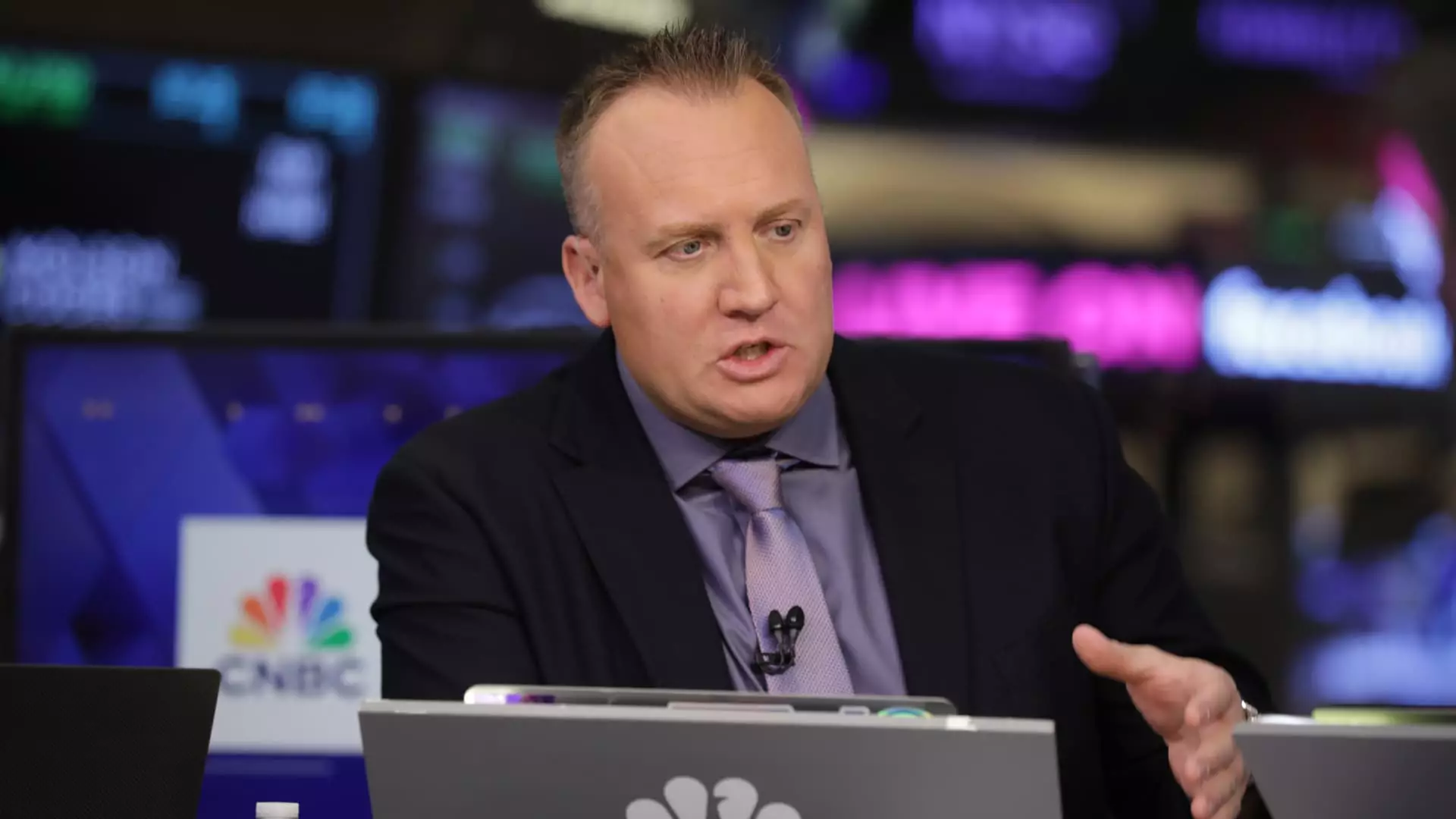In a remarkable turn of events, the conversation surrounding stock market trajectories has pivoted sharply from trade tariffs to artificial intelligence (AI). The recent statements by Josh Brown, CEO of Ritholtz Wealth Management, underscore a critical trend: AI is no longer a peripheral topic; it has moved to the forefront of economic discussions and stock evaluations. A striking revelation is that during the latest earnings season, references to AI far eclipsed mentions of tariffs, with reports indicating a ratio of 2.6 to one. This shift highlights a seismic change in how we understand market drivers, indicating that investor sentiment is increasingly intertwined with technological advancements rather than traditional economic anxieties.
The Rescue of the Stock Market
April may be remembered not just for its showers but for a dramatic downturn in stock performance. Yet, according to Brown, it was the fortuitous guidance from tech giants, particularly those harnessing AI technologies, that rescued the stock market from what could have been a catastrophic downturn. Companies like Microsoft not only met but exceeded expectations, boosting their stock prices significantly. Such performance illustrates how AI isn’t merely an industry buzzword; it acts as a lifeline for companies, providing them with the innovative edge necessary for financial resurgence. The baking in of AI into corporate strategy has proven to be a game-changer, enabling these companies to outperform in a challenging economic environment.
Investing in the Future: Nvidia at the Center of the Storm
If AI is the sun, as Brown metaphorically suggests, then Nvidia stands as its central star. This chipmaker has emerged as a linchpin in the AI narrative, driving not just investor interest but creating a ripple effect across the tech ecosystem. With its quarterly earnings expected soon, the stakes are exceptionally high. Nvidia’s capacity to innovate and develop AI solutions not only positions it favorably within the tech sector but also signifies broader economic implications. As AI technologies proliferate, the demand for advanced hardware like GPUs—Nvidia’s specialty—will only increase, ensuring a bright outlook for investors who recognize the potential for exponential growth in this segment.
The Multiplicity of Themes
While Brown acknowledges the presence of multiple themes in the market, he firmly holds that absent the AI narrative, the sector would struggle significantly. The resurgence of tech stocks can largely be attributed to the optimistic outlook on AI, overshadowing any fears related to tariffs or geopolitical tensions. This presents a more nuanced understanding of market dynamics; relying solely on fear mongering about trade issues is increasingly becoming a relic of the past. Instead, investors find themselves galvanized by visions of technological advancement, steering clear of the distractions that once dominated headlines.
A Cautious Approach
Still, caution is warranted. This over-reliance on AI-driven stocks poses questions about sustainability. Can the current momentum be maintained if economic policies shift or if AI advancements plateau? Investors need to be discerning and strategic, understanding that while AI presents significant opportunities, it also carries inherent risks. Flat earnings reports from tech giants could lead to substantial corrections, and a single misstep could jeopardize the very companies that are fueling investor optimism.
Policy Implications and the Center-Right Perspective
From a political standpoint, this pivot to technology also necessitates a critical look at regulation and corporate governance. As more companies invest heavily in AI, there is a pressing need for sensible regulatory frameworks that foster innovation while protecting consumer interests. A center-right approach would advocate for minimizing bureaucratic hurdles that hinder technological progress while ensuring that market practices remain fair and competitive. This balance is vital—not only for economic growth but to maintain the spirit of entrepreneurship that drives American innovation.
AI is reshaping not just markets but perceptions of economic viability in the 21st century. As we navigate this new landscape, it is essential to recognize the power of technology while remaining judicious about the inherent risks that come with it. The exciting possibilities generated by advancements in artificial intelligence can indeed spark economic revitalization, but it is the wisdom in our investments and policies that will determine if this moment leads to sustainable prosperity or market instability.

